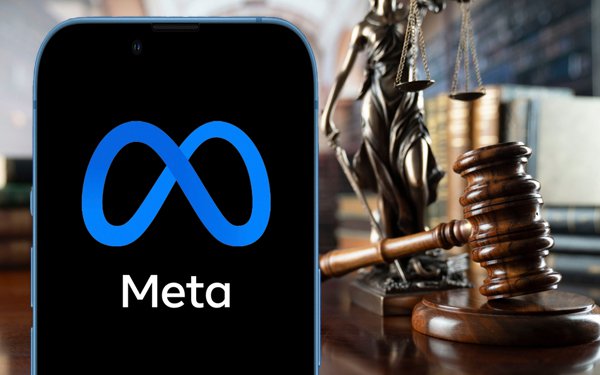Appeals Court Won't Intervene In Battle Between Meta, Users
- by Wendy Davis @wendyndavis, May 2, 2025

A federal appellate court on Friday rejected Meta users' request to immediately appeal a ruling that denied them class-action status in a lawsuit over alleged antitrust violations.
The 9th Circuit Court of Appeals didn't give a detailed reason for turning away the users.
The court's move allows the users to continue with their antitrust lawsuit against Meta, but only on behalf of themselves as individuals.
The new ruling comes in a battle dating to 2020, when Vermont resident Maximilian Klein and Illinois resident Sarah Grabert sued the platform. The duo -- later joined by Minnesota resident Rachel Banks Kupcho -- alleged that Facebook grew in popularity after deceiving consumers about its privacy policy, then “weaponized” consumer data in order to acquire potential rivals like social media service Instagram (acquired for $1 billion in 2012) and messaging service WhatsApp (bought for $19 billion in 2014).
advertisement
advertisement
They sought to represent a class of people in the U.S. who used Facebook December 2016 and December 2020, and argued that class-action status was appropriate because all Facebook users were equally “overcharged” by Meta.
That argument centered on a claim that Meta would have had to pay each user $5 per month for his or her personal data, had it not obtained a monopoly. The $5 figure came from a witness presented by the plaintiffs -- economist Nichola Economides.
Donato rejected the plaintiffs' theory earlier this year, ruling that Economides' opinion was not supported by the record.
“There is no doubt, as he says, that Meta makes a lot of money from user data, but [Economides] did not demonstrate that Meta would be compelled to retain users by paying them, rather than through innovations in services and product quality.” Donato wrote.
Counsel for the plaintiffs asked the 9th Circuit for permission to immediately appeal, arguing that Donato wrongly rejected Economides' opinion.
“It was for the jury, not the court, to weigh that conflicting evidence to decide what Facebook would have done to compete if it had not employed misrepresentations of its data and privacy practices to monopolize the market,” the plaintiffs' lawyers argue.
Earlier this week -- while the plaintiffs' request for appellate intervention was still pending -- Meta asked Donato to rule in its favor on the antitrust claims.
“This court should grant summary judgment for the same reason it denied class certification,” Meta argues.
The company contends that the users' case relies on Economides' theory that, absent a monopoly, Meta would have had to pay users $5 per month.
“As the court already concluded, Economides’s injury opinion is unreliable and unsupported,” Meta wrote.
The company added that the plaintiffs' case “relies on a long, speculative chain of causation that starts with the baseless assumption that people choose online platforms based on representations about data collection and use, reimagines vague statements about 'privacy' as critical to Facebook’s popularity, and ends with the (again, baseless) assumption that if Meta had faced stronger competition from some unknown firm, it would have been forced to pay people five dollars a month to keep them on Facebook.”
Donato is expected to hold a hearing in the matter in July.
The Federal Trade Commission separately is suing Meta over its acquisitions of Instagram and Whatsapp. A trial in that matter is currently underway in federal court in Washington, D.C.


